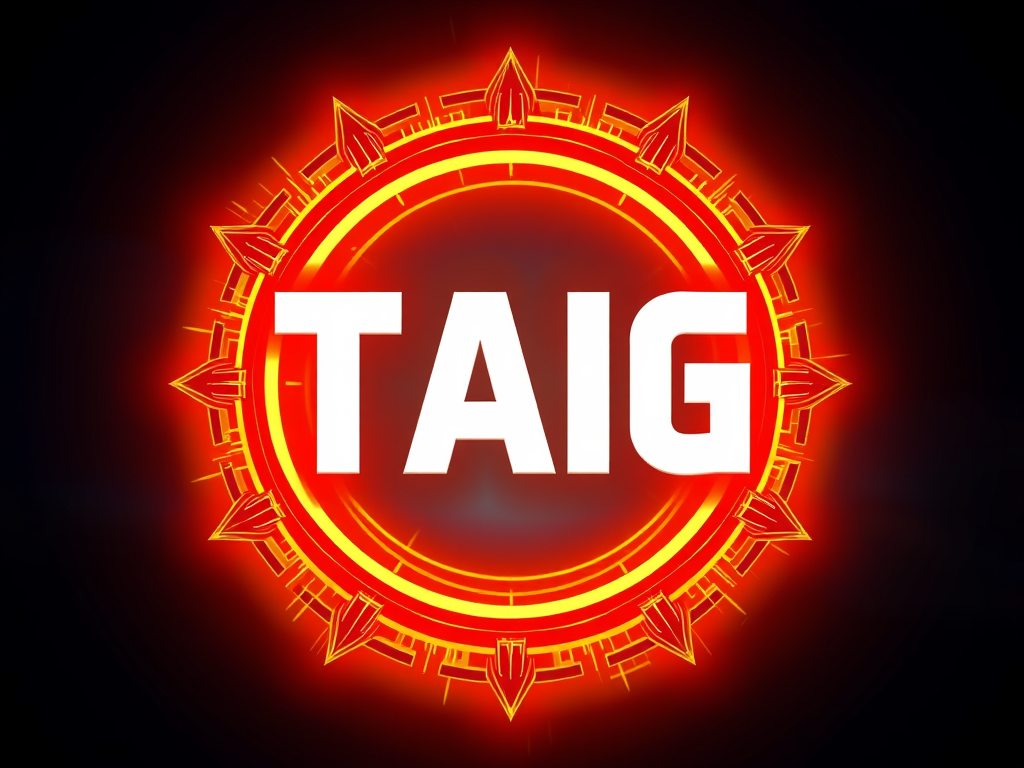Transform your business operations by integrating AI staff solutions that handle tasks precisely and tirelessly. Specialized virtual assistants like Sintra’s suite automate everything from customer support to data analysis, boosting productivity and freeing you to focus on growth. Experience seamless collaboration, multilingual support, and continuous learning that adapts to your needs—effortless automation designed to scale your enterprise efficiently and intelligently.
Overview of AI Staff Solutions and Their Business Impact
AI staff are virtual assistants that automate core business tasks, such as customer support, content creation, and social media management. They enable businesses to increase efficiency, reduce operational costs, and expand capacity without hiring additional personnel. Marblism delivers AI staff solutions that exceed traditional workforce limitations by offering tailored AI helpers that adapt to specific industry needs and workflows.
Have you seen this : What role does AI play in the UK’s high-tech computing landscape?
These solutions transform workforce management by seamlessly integrating AI into daily operations, offering advantages like 24/7 availability, quick task execution, and multilingual support. They also empower companies with scalable tools that support remote teams and global expansion. Many platforms, like Sintra, provide specialized AI helpers that learn from uploaded data and ongoing instructions, continuously improving their output.
Types and Roles of AI Staff in Business Operations
Specialized AI staff solutions now occupy prominent roles across modern business models. These roles, including AI assistants as virtual staff, span business development, sales outreach, marketing, support, and operations. AI staff roles and responsibilities often cover routine task automation, such as scheduling, customer interactions, and content generation, while also extending to complex assignments like data analysis and strategy recommendations. The benefits of AI staff in business are most evident when AI is tasked with reducing manual workflows, which yields increased speed and heightened accuracy in project delivery.
Topic to read : Exploring how ai revolutionizes career prospects in the tech industry
Specialized AI Assisting Business Development and Sales
AI-powered workforce management is reshaping how businesses drive growth. For instance, virtual sales AI supports outreach, lead engagement, and follow-ups automatically, giving human teams the bandwidth for relationship-building and negotiations. AI staff augmentation strategies incorporate these helpers into daily operations, maximizing workforce output without increasing headcount. This scalable approach allows businesses adopting AI staff solutions to streamline prospecting and convert leads efficiently, leading to quantifiable improvements in business outcomes.
AI for Customer Support and Client Engagement
AI in employee scheduling and customer service staffing consistently boosts responsiveness and customer satisfaction. Virtual assistants handle routine queries, offer multilingual support, and adapt their communication for diverse global clients. Integrating AI with human staff ensures seamless handovers for more complex issues, aligning with evolving expectations of continuous, personalized client care. AI staff monitoring systems help track metrics to maintain quality in these client-facing roles.
AI in Marketing, Content Creation, and SEO Optimization
Modern AI tools for staff productivity excel at automating social posting, writing blogs, and optimizing for SEO. By implementing AI for team management, marketing leaders can direct resources where impact is greatest. AI-powered workforce management enables real-time performance analysis and rapid content deployment, a practice increasingly seen in businesses adopting AI staff solutions to maintain a visible, dynamic online presence.
Key Features and Functionalities of AI Staffing Platforms
AI staff solutions deliver automated task execution across multiple domains critical to business success. These platforms enable non-stop productivity by handling social media management, email marketing, customer support, and recruitment without breaks or human downtime. Businesses adopting AI staff solutions often report efficiency improvements, highlighting the ability of an ai-powered workforce management system to support consistent operations around the clock.
With learning capabilities, AI staff roles and responsibilities can expand over time. When new files, instructions, or web content are uploaded, the system adapts, exemplifying how ai-powered workforce management fosters continuous improvement. This means that the longer a business uses AI assistants as virtual staff, the more specialized and accurate the support becomes.
Seamless integration with existing tools is a hallmark of modern AI staff solutions. These platforms synchronize data and automate workflows by connecting with Gmail, Google Calendar, social media, and CRM software—crucial for maximising efficiency with ai staff and streamlining communications.
Through the adoption of ai staff augmentation strategies, businesses can manage remote teams with ai, automate repetitive tasks, and leverage ai tools for staff productivity. This approach not only reduces operational costs but also increases flexibility and scalability, making AI staff solutions indispensable for forward-thinking organizations.
Implementation Strategies and Use Cases
Building and Training AI Staff for Specific Business Needs
AI-powered workforce management streamlines operations by assigning tailored AI staff roles and responsibilities to address unique business challenges. A successful approach begins with selecting AI assistants matching precise workflow needs—such as customer support, recruitment, or analytics—and feeding them data or clear parameters. This enables AI-driven shift planning and workforce flexibility, especially for companies scaling quickly or managing diverse teams.
AI staff augmentation strategies focus on integrating intelligent assistants into daily operations, reducing manual workload. Businesses adopting AI staff solutions benefit by automating repetitive tasks, from handling inquiries to setting schedules. As a result, onboarding timelines decrease, and employees can focus on high-priority objectives.
Training employees on AI staff tools is crucial when integrating AI with human staff. Providing accessible training modules and regular ai staff review and feedback sessions strengthens cooperation and trust. This approach addresses ai staffing challenges and solutions directly by promoting transparency and acceptance among employees.
Managing Remote Teams with AI Assistance
AI staff monitoring systems ensure accountability and continuity for remote work. Artificial intelligence for staff workload balancing allocates work based on real-time team inputs, maximizing efficiency with ai staff. Managers can oversee team progress, receive AI staff performance analysis, and quickly adjust staffing using ai-enhanced decision making for staff leaders.
Case Studies in AI-Powered Staffing
Across industries like healthcare, retail, and real estate, ai tools for staff productivity handle complex workflows, freeing human employees for more strategic activities. Businesses adopting ai staff solutions report scalable operations and improved employee engagement analysis—proving that elevating your business with effortless AI staff solutions delivers measurable operational gains.
Cost, Performance, and Ethical Considerations
Precision: AI staff solutions often deliver higher efficiency per dollar than traditional staffing approaches. Instead of paying full salaries and benefits, businesses leverage AI-powered workforce management on a subscription or per-use basis—lowering operational costs and unlocking new flexibility. With ai staff augmentation strategies, organizations can scale workloads up or down instantly, optimizing resource allocation.
ROI measurement is central when assessing ai staff roles and responsibilities. Metrics such as cycle time reduction, error rate drops, and volume increases in repetitive tasks reflect clear cost advantages. Evaluating ai staff performance analysis with dashboards and detailed productivity reports helps quantify the benefits of automating tasks like employee scheduling, data entry, and customer support compared to manual handling.
Adopting ai staff solutions requires strong ethical guidelines. Privacy concerns with ai staff monitoring arise, especially as tools track performance, communication, and workflow. Transparency in how data is used, robust consent protocols, and ai staff data security best practices ensure compliance with privacy regulations and user trust.
Integrating ai-powered workforce management with human team members also demands careful change management. Combining AI staff with traditional HR processes, like training employees on ai staff tools, ensures long-term acceptance and maximizes efficiency with ai staff. Ethical implementation lets businesses elevate your business with effortless AI staffing solutions while respecting employee rights and data privacy.
Future Trends and Innovations in AI Staffing
Scalability of AI staff solutions is reshaping the landscape for both small and large enterprises. Modern AI-powered workforce management tools adapt in real time, allowing seamless expansion or downsizing according to evolving business needs. This flexibility is especially valuable for startups that require agile staffing options and for established organizations that need robust AI staff scheduling software to handle complex operations without escalating costs.
AI staff roles and responsibilities are evolving thanks to new technologies like internal AI chatbots, which streamline communication and automate repetitive tasks. These innovations not only improve staff productivity, but also enhance how remote teams are managed. AI-driven shift planning and AI staff monitoring systems allow leaders to balance workloads efficiently and maintain oversight across multiple projects.
Integrating AI with human staff fosters collaboration where each complements the other’s strengths. For example, AI in employee scheduling and project management helps eliminate human error, while humans oversee final decision-making and provide creative insights. Companies implementing AI for team management see benefits in forecasting staff requirements using AI, enabling proactive adjustments and more informed decisions.
Finally, the future of artificial intelligence in staffing points to greater adoption of AI assistants as virtual staff, personalized analytics dashboards, and enhanced performance analysis. As AI staff solutions become increasingly common, businesses elevate their operational agility, workforce engagement, and long-term growth potential.


